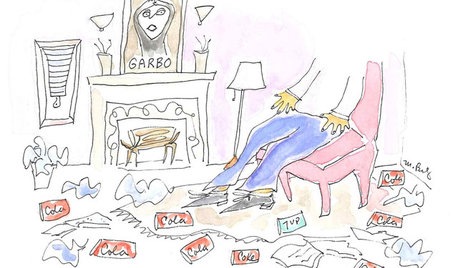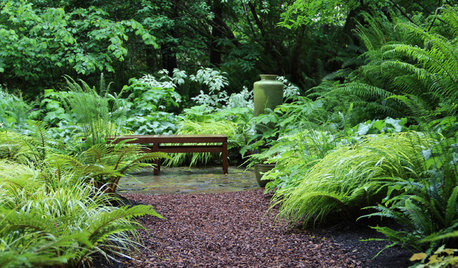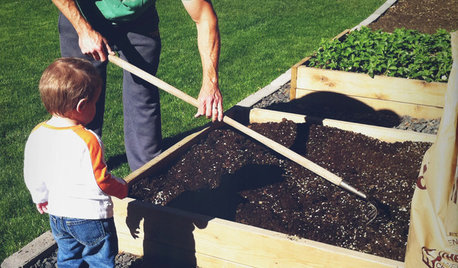Terrible raised bed soil; where to go from here.
nativeplanter
14 years ago
Related Stories

LIFEPortrait of a Terrible Housekeeper
Even in hair-raising tales and harebrained organizing schemes, there's something we can learn
Full Story
GARDENING GUIDESGardening Solutions for Heavy Clay Soils
What’s a gardener to do with soil that’s easily compacted and has poor drainage? Find out here
Full Story
GARDENING GUIDESHouzz TV: Make a Worm Bin for Rich Soil and Happy Plants
A worm-powered compost bin that can fit under a sink turns food scraps into a powerful amendment for your garden. Here’s how to make one
Full Story
GARDENING GUIDESHow to Stop Worrying and Start Loving Clay Soil
Clay has many more benefits than you might imagine
Full Story
FARM YOUR YARDHow to Get Good Soil for Your Edible Garden
The nutrients in your soil feed the plants that feed you. Here are tips on getting it right — just in time for planting season
Full Story
GARDENING GUIDES10 Solutions for Soggy Soil
If a too-wet garden is raining on your parade, try these water-loving plants and other ideas for handling all of that H2O
Full Story
GARDENING GUIDESGrow a Beautiful Garden in Alkaline Soil
Got alkaline soil? Learn how to manage it and the many beautiful plants that will thrive in this ‘sweet’ soil
Full Story
GARDENING GUIDESGet the Dirt on Your Garden’s Soil
Understand how your soil supports your plants so you can ensure your garden’s success
Full Story
GARDENING GUIDESHow to Pick a Mulch — and Why Your Soil Wants It
There's more to topdressing than shredded wood. Learn about mulch types, costs and design considerations here
Full Story
GARDENING AND LANDSCAPINGBuild a Raised Bed to Elevate Your Garden
A bounty of homegrown vegetables is easier than you think with a DIY raised garden bed to house just the right mix of soils
Full Story




scarletdaisies
homertherat
Related Discussions
Soil test results from my raised bed....
Q
new raised bed, where to get organic soil?
Q
filling in the bare spots/where to go from here?
Q
Raised bed soil compacted: Where did I go wrong?
Q
Kimmsr
petalpatsy
nativeplanterOriginal Author
glad2garden
nativeplanterOriginal Author
homertherat
scarletdaisies
petalpatsy
gardengal48 (PNW Z8/9)
Dan _Staley (5b Sunset 2B AHS 7)
borderbarb
ericwi
kqcrna